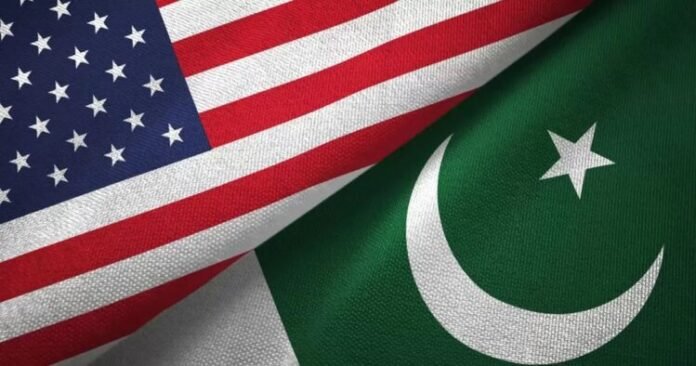ISLAMABAD: In an unusually discreet move, Pakistan’s Ministry of Commerce has launched hush-hush consultations on a potential zero-tariff trade framework with the United States—an initiative that has sparked both intrigue and concern within policy and business circles.
Multiple well-placed sources confirm that closed-door meetings involving select officials from the Commerce and Finance ministries have been underway, with the agenda focused on recalibrating tariffs in key sectors of Pakistan-US trade. But what’s raising eyebrows is not just the scope of the deal—it’s the method of consultation: no written proposals, no documentation, and no bureaucratic trail.
“It was all verbal. We were explicitly told not to bring or submit any documents. That’s highly irregular in any policy process, let alone one with such strategic consequences,” said one senior official who attended the meetings under condition of anonymity.
The covert nature of the discussions—reportedly overseen by Finance Minister Muhammad Aurangzeb and a tight inner circle—has alarmed some experts, who warn that the absence of broader consultation could lead to one-sided concessions favoring Washington. Particularly under review are tariff relaxations for US soybean exports, concessions in Pakistan’s mining and extractive industries, and expanded market access for American goods.
A Trump-Era Legacy, a Biden-Era Strategy?
The quiet revival of trade diplomacy traces back to the diplomatic afterglow of former US President Donald Trump’s widely disputed claim of mediating a ceasefire between Pakistan and India. At the Saudi-US Investment Forum 2025, Trump emphasized economic engagement over confrontation: “Let’s not trade nuclear missiles. Let’s trade the things you make so beautifully.”
While the claim drew skepticism, it appears to have set in motion a new wave of economic diplomacy between Islamabad and Washington. Now, Pakistan is offering a bold proposal: a zero-tariff framework, potentially opening its market in exchange for lifting steep US duties on Pakistani exports—some of which currently face tariffs as high as 29% under Trump-era policies.
Strategic Silence or Risky Gamble?
Analysts say the potential benefits of a zero-tariff agreement are substantial—but so are the risks.
“Tariff elimination sounds like a win-win, but without a clear understanding of the fine print and sectoral impact assessments, Pakistan could end up making irreversible trade-offs,” warned an Islamabad-based trade economist. “This is not just about soybeans or mining—it’s about setting long-term rules of engagement.”
The opacity has also left major business lobbies and exporters in the dark. Key stakeholders in textiles, pharmaceuticals, and agribusiness say they were not consulted, despite the fact that changes in tariff policy could dramatically alter their competitiveness in US markets.
Talks Nearing Conclusion—But Who’s in the Loop?
On Wednesday, Pakistan’s Finance Ministry confirmed that trade talks with the US are nearing conclusion. Finance Minister Aurangzeb met with US Commerce Secretary Howard Lutnick, with both sides expressing satisfaction and pledging to finalize the framework in the coming week.
Official statements offered little detail. However, sources suggest that as part of the bargain, Pakistan may agree to ramp up imports of US crude oil and offer enhanced incentives to American investors—especially in the energy and resource sectors.
With Pakistan’s trade surplus with the US standing at $3 billion in 2024, Islamabad is reportedly eager to prevent further tariff impositions and secure stable market access. Yet, without a transparent roadmap or input from industry experts, many fear that the cost of quick diplomatic wins may be too steep.
As officials work quietly behind closed doors, a crucial question looms: will this trade détente serve Pakistan’s long-term economic interests—or lock it into a lopsided deal crafted in the shadows?




